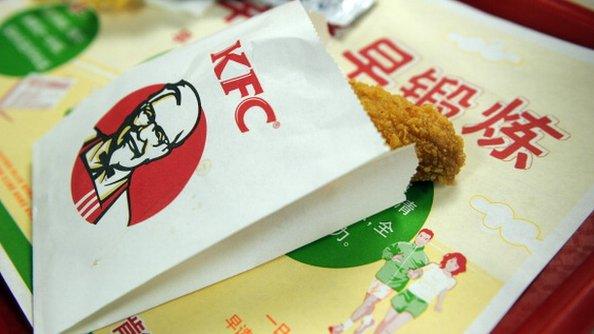Bad taste lingers over China's latest food scandal
- Published
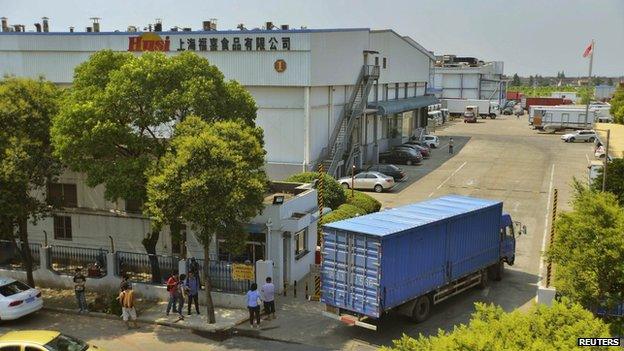
Husi is the latest foreign-owned brand to become the subject of a scandal in China
Wang Fang didn't work for the Shanghai Husi Food Company for long.
Just two days into her new job packing pork products, she found herself caught up in the latest stomach-turning scandal to hit the Chinese headlines.
An investigation, broadcast by state-run TV, had shown her fellow workers mincing up piles of old greying meat and then repackaging it as new.
So the authorities moved in, closing down production and sending the workers home.
In the latest development, five staff members, including the company's quality manager, are reported to have been arrested.
And to the shocking allegations, Wang Fang can add one more. She is only 15 years old, still at school, and below China's minimum age for working.
During her short career at Husi, she says she was employed with no questions asked and set to work on gruelling 12-hour night shifts.
"I looked for many jobs, but because I am not old enough and the age on my ID card is too young, I couldn't get any job," she tells me.
"But when I went to Husi, I didn't need an interview, just a physical check up and then I started right away."
Shanghai Husi Food Co is alleged to have re-processed expired meat
And right away she wondered about the quality of the meat she was being asked to package for human consumption.
"The smell of the pork there was different from the pork we eat at home. I felt more like throwing up when I smelled it," she says.
"I thought maybe the smell came from the mass production. I had no idea that they are selling such old meat. I think it's very scary."
In one example, last weekend's TV expose showed a large quantity of veal, seven months past its expiry date, being given a new lease of life, extending the period in which it can be eaten for another year.
And when Shanghai's food safety inspectors moved in, accompanied by journalists, it seems - from Wang Fang's account at least - that her managers did have something to hide.
"They put away all the meat and things that are on the production line and also cleaned the floor," she says. "After they put our stuff away, we all stood up, so the reporters came in but couldn't see anything."
It was a futile attempt as the most incriminating evidence had already been gathered by secret filming.
As a result, McDonalds, KFC and Starbucks, to name just a few of the fast food brands affected, have withdrawn Husi's products from sale.
One city centre McDonalds close to the BBC office today had only fish and chicken products on sale, no beef at all.
Food scandals are nothing new in China and some have certainly been much more serious than this one.
So far there have been no documented cases of ill health from Husi's products - although that will be of little comfort to consumers.
Judging from those I spoke to in the street today, almost all had heard of the scandal and many said they had stopped eating in the restaurants affected.
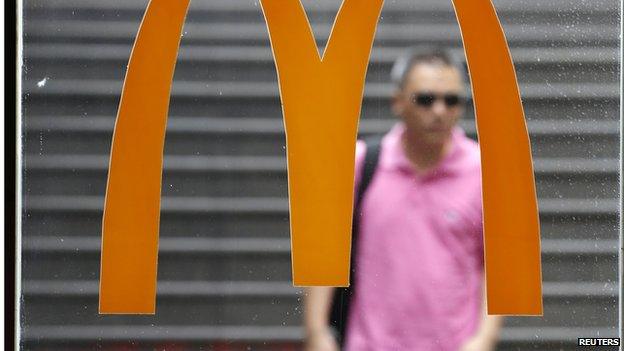
McDonalds is one of several brands - along with KFC and Starbucks - that have withdrawn Husi products from sale
But could there be more to the case than the simple apparent breach of food safety regulations?
Husi is one of the biggest meat suppliers in Shanghai and it just happens to be owned by one of the biggest meat processing companies in the world, the US-based OSI group.
Some observers are wondering if there are parallels with the recent troubles facing another big foreign brand in China.
With China's pharmaceutical sector, just like the food industry, riddled with corruption and lax regulation, the singling out of GlaxoSmithKline (GSK) for allegations of widespread bribery has been an issue of much debate.
Whatever the strength of the evidence against the company, some argue that it is being used as a convenient foreign scapegoat, deflecting attention from similar problems in home-grown brands and the industry as a whole.
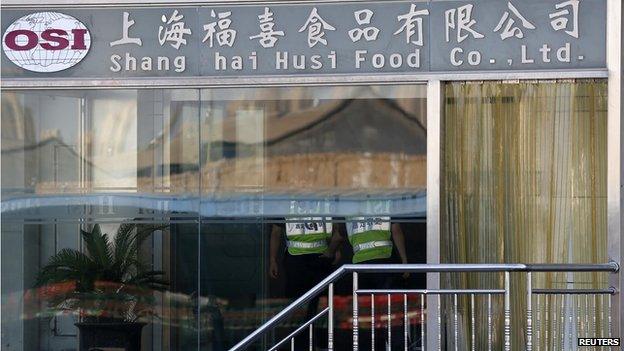
Husi has insisted that the scandal uncovered an isolated incident
What seems certain is that - given the political nature of all state institutions in China, including food-safety bureaux and media organisations - action against such big, high-profile companies is unlikely to be independent and spontaneous.
And while both companies are insisting that whatever has been uncovered is the result of localised problems - the Husi statement this week spoke of an isolated incident as opposed to anything more systemic - the authorities appear to want to show much more than that.
Just as with GSK, where they allege the bribery was masterminded by senior management, Chinese state media today claimed that Shanghai's food safety investigators had found a similar trail to the top at Husi.
But regardless of the truth of the allegations or the real motivation behind them, for the foreign restaurant brands affected by this latest scandal, the damage may be short lived.
One shopper I spoke to told me that she was giving up her regular breakfasts at McDonalds in disgust.
"How long for?" I asked.
"Oh, about a month," she replied.
- Published23 July 2014
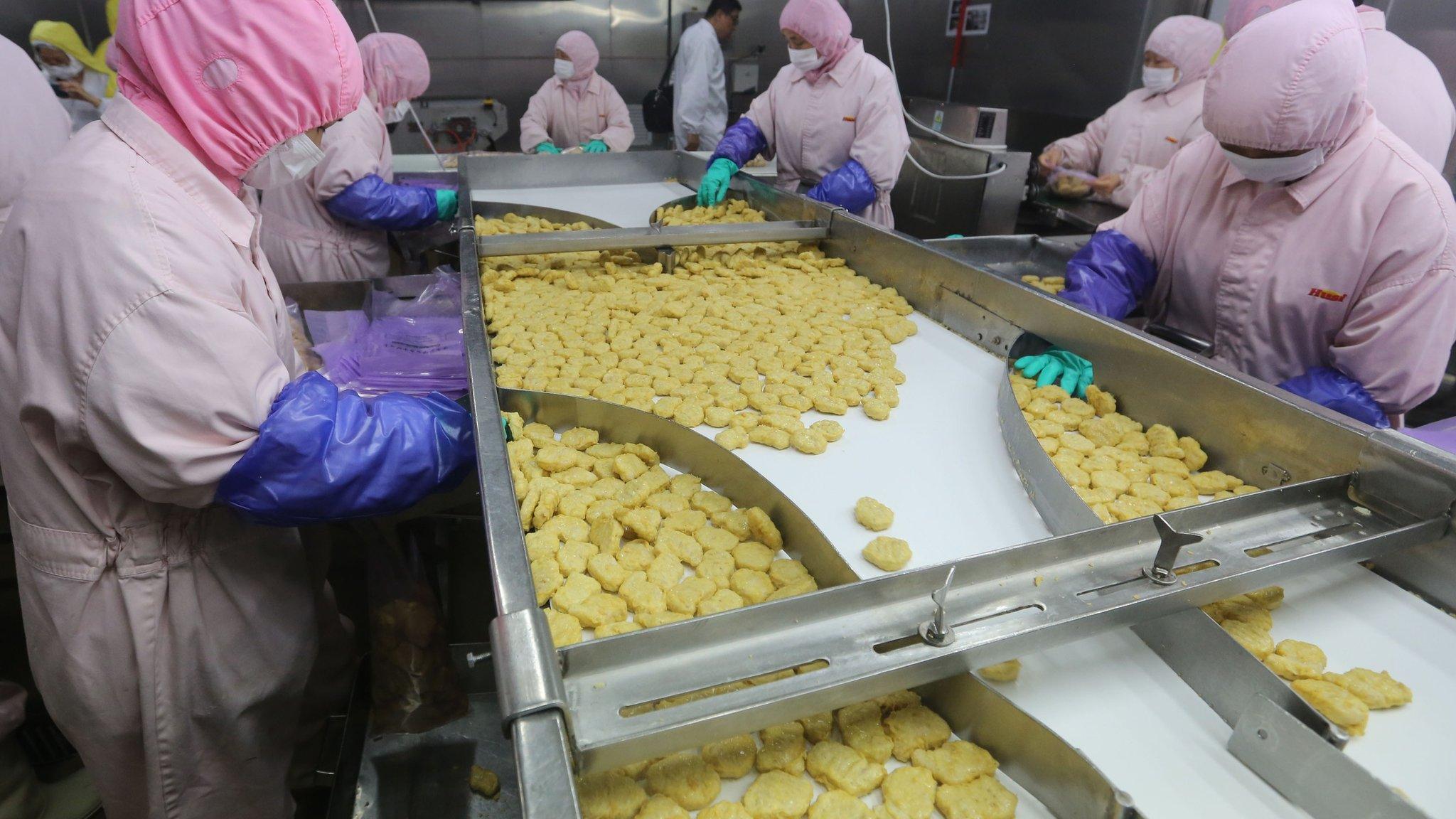
- Published21 July 2014
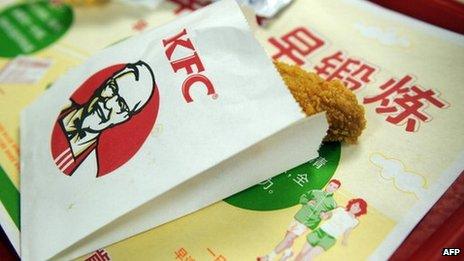
- Published23 April 2014
